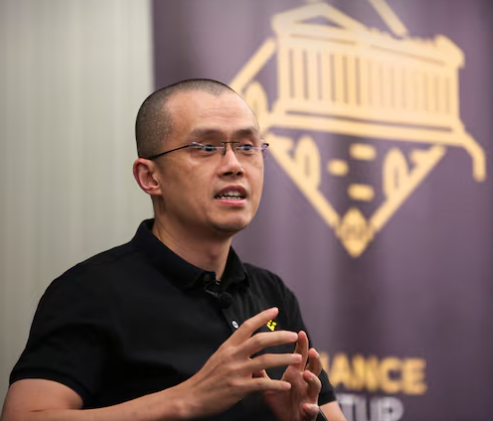The CEO of Binance, a popular cryptocurrency platform, claimed that some unknown persons, claiming to be agents of Nigerian officials demanded huge payments in cryptocurrency to make their problems in the country “go away”.
Richard Teng, the firm’s chief executive officer (CEO) who took over from founder and former CEO Changpeng Zhao, made the claim in a blog post released Tuesday, May 7, on Binance’s website.
He added that the request was made through a local firm it hired.
Speaking on Binance’s issues with the Nigerian government, Teng detailed how the world’s largest cryptocurrency exchange tried to engage with the Nigerian authorities, including a meeting on January 8 in Abuja, where it was confronted with criminal allegations.
Teng said despite multiple requests, Binance had still not received details of the allegations, “and our employees, therefore, inquired if there was an opportunity to submit our responses in writing and in the absence of a public hearing”.
“There were a number of reasons for that, including the sensitivity of the information and getting the opportunity to see the allegations in full and prepare a thorough substantive response,” he said.
“The meeting ended with the Chair confirming they would consider the matter and revert through Binance’s local counsel.
“However, as our employees were leaving the venue, they were approached by unknown persons who suggested to them to make a payment in settlement of the allegations.
“Later that day, our local counsel — representing us at that time — was summoned by the Committee through someone purporting to be their agent, who relayed the Committee’s terms and instructed our local counsel to advise us.
“Counsel reported back that he had been presented with a demand for a significant payment in cryptocurrency to be paid in secret within 48 hours to make these issues go away and that our decision was expected by the morning.
“Our team grew increasingly concerned about their safety in Nigeria and immediately departed.”
Teng said the payment request was declined “via our counsel, not viewing it to be a legitimate settlement offer”.
The CEO said Binance clarified that it would engage in settlement negotiations on the conditions that the relevant petition or the details of all allegations were seen.
He wrote: “We, of course, declined the payment demand via our counsel, not viewing it to be a legitimate settlement offer, and clarified that we would engage in settlement negotiations on the following conditions:
“Binance needs to see the relevant petition and/or the details of all allegations.
“Any settlement must be official, recorded in writing, and signed by all relevant parties.
“Any settlement must encompass all relevant agencies and be in full and final settlement of all allegations, including any potential historic tax liabilities, if applicable, with guarantees.
“While the exact terms of any settlement may have to remain private, there would have to be some public acknowledgement that a resolution has been reached.”
The Binance boss also requested that the company’s “contractors and employees are not to be intimidated, harassed, or detained.”
He said the Binance counsel relayed its conditions which Nigerian authorities initially objected to before they later agreed.
In continuation of its engagement with Nigeria, two Binance officials, Nadeem Anjarwalla, a 37-year-old British-Kenyan and Binance’s regional manager for Africa; and Tigran Gambaryan, a 39-year-old US citizen and Binance’s head of financial crime compliance, arrived Nigeria to discuss further terms with the Nigerian government but they were arrested on February 28.
Anjarwalla later fled detention and left Nigeria.
On March 25, Nigeria’s government filed a criminal charge against Binance for “tax evasion”.
Teng appealed to the government to “Let Tigran go home to his family, and then Binance will work through the same process that we have done with Nigeria’s law enforcement community voluntarily more than 600 times in the past.”
He added: “We will always work to protect innocent users, and bad actors are not welcome on our platform. We will work tirelessly with public and private partners to remove them. Furthermore, we will continue engagement with Nigeria’s Federal Inland Revenue Service on resolving potential historic tax liabilities.”

